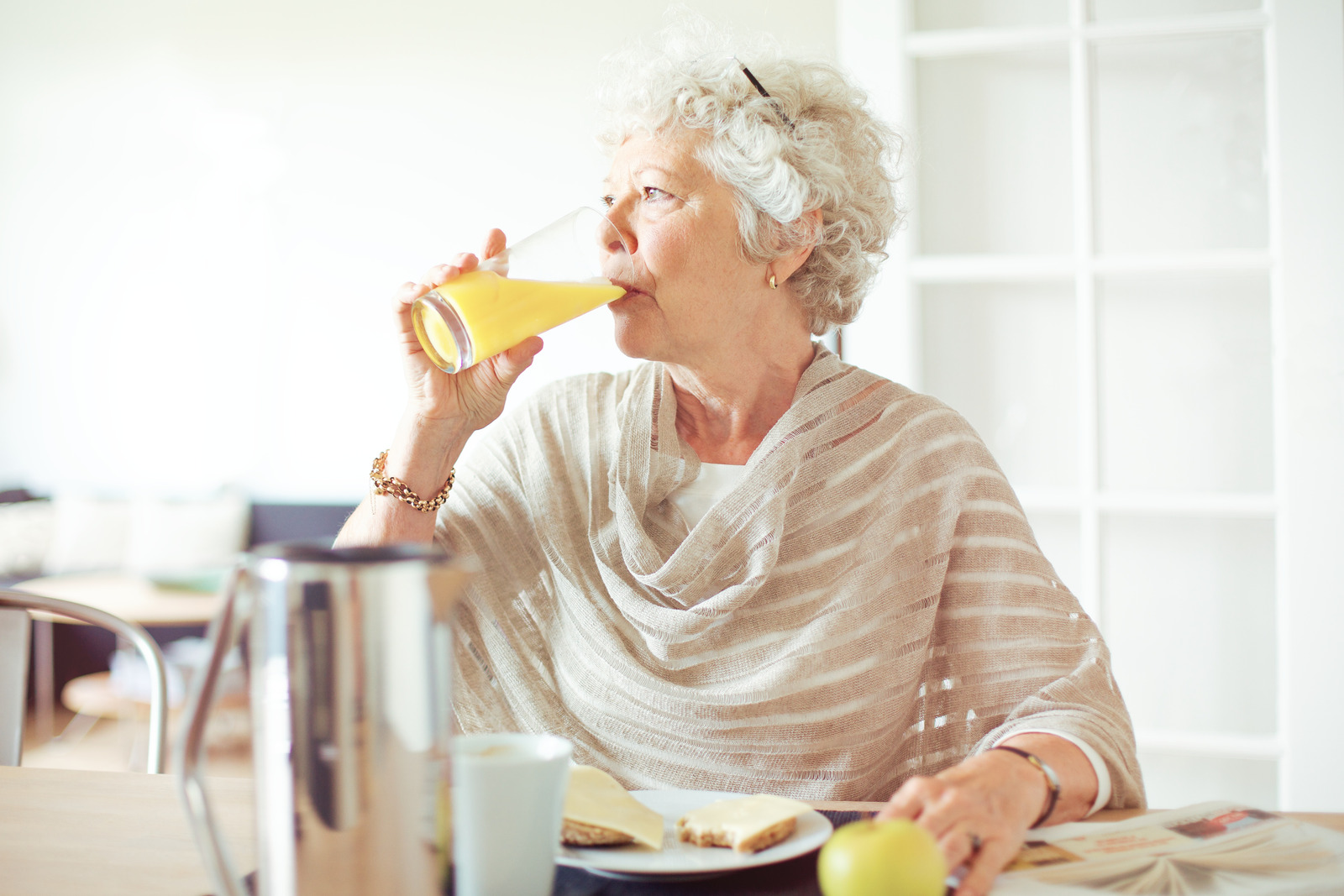Bowels can be an unpleasant topic to discuss, but it can be even more unpleasant when they don’t work how we want them to! As we age, our bowels lose muscle tone which can make having an effective bowel motion a challenge! This can lead to embarrassment, discomfort, decreased quality of life and even hospitalisation. Fortunately, there are simple things that can be done to help move things along for our elderly residents.
Encourage Fluids
When we are dehydrated, our body will start to draw water from wherever it can. This can result in a dry, hard stool that is both painful and difficult to pass! On the other end of the spectrum, diarrhoea can cause our bodies to lose too much water! Older people may not recognise the signs of dehydration and can forget to drink. Therefore it is important to encourage fluid intake throughout the day.
- Nourishing Fluids
Nourishing fluids are drinks that provide calories. This can include milk, cordial and juice. Nourishing fluids have the added benefit of preventing weight loss and malnutrition. They can also help add variety for resident’s who don’t really enjoy drinking water.
- Warm Drinks
Warm drinks such as coffee, tea and Milo add more variety to a resident’s day and help meet their fluid requirements. These drinks can be made more nourishing with the addition of milk, sugar and honey.
- Sweet Treats
It’s easy to forget that ice-cream, icy poles and jelly all count as thin fluids. These not only help to hydrate elderly residents but have the added bonus of cooling them down as the weather gets warmer. Like nourishing fluids, these desserts also help to prevent weight loss and malnutrition.
Increase Fibre
Fibre can regulate bowels in two ways. It can soften the stool to make it easier to pass as well as add bulk so that what comes out isn’t too watery! Fibre also helps with the growth of good gut bacteria which can promote a healthy digestive system. Fibre is found in foods of plant origin such as fruits, vegetables, nuts, seeds, bread, pasta and rice.
- Fruit and Vegetables
Not only do fruits and vegetables provide lots of vitamins and minerals, but they also contain plenty of fibre. This makes them a nutritious food whether they’re fresh, tinned, frozen or puree. Aim to provide fruits and vegetables of varying colours to keep meals interesting and to provide a wide range of vitamins and minerals. Foods such as soup, casserole and pasta sauce can all be made more nutritious with the addition of vegetables such as tomato, zucchini, cauliflower, egg plant and green beans. Look for creative ways to add more fruits and vegetables into the day.
- Grains
Bread, pasta and rice are just some examples of different grains that can add fibre to our diet. They also provide energy for the body, which is important in the prevention of malnutrition. Serving grains with each meal can help balance it out as well as promote good management of diabetes. Grains don’t have to be limited to meal times; they can also be served as snacks between meals. Muffins, homemade biscuits and cake can all provide some grains. They can also be made to a puree texture with the addition of milk or cream. This has the added benefit of preventing weight loss.
Regular Exercise
Regular exercise carries many benefits for elderly residents including improved strength, stronger bones, joint and heart health, improved quality of life and of course improved bowel function. It is recommended that people over the age of 65 engage in at least 30 minutes of moderate physical activity every day; however, any exercise will still carry benefits. Encourage residents to engage in exercise and lifestyle groups or to stroll around the facility. A physiotherapist can also help by developing a tailored exercise plan to improve the health and mobility of residents in aged care.
Regulating bowels can play a major role in improving quality of life. If you recognise that any of your residents are struggling with their bowels, send through a referral to your Plena Healthcare dietitian



